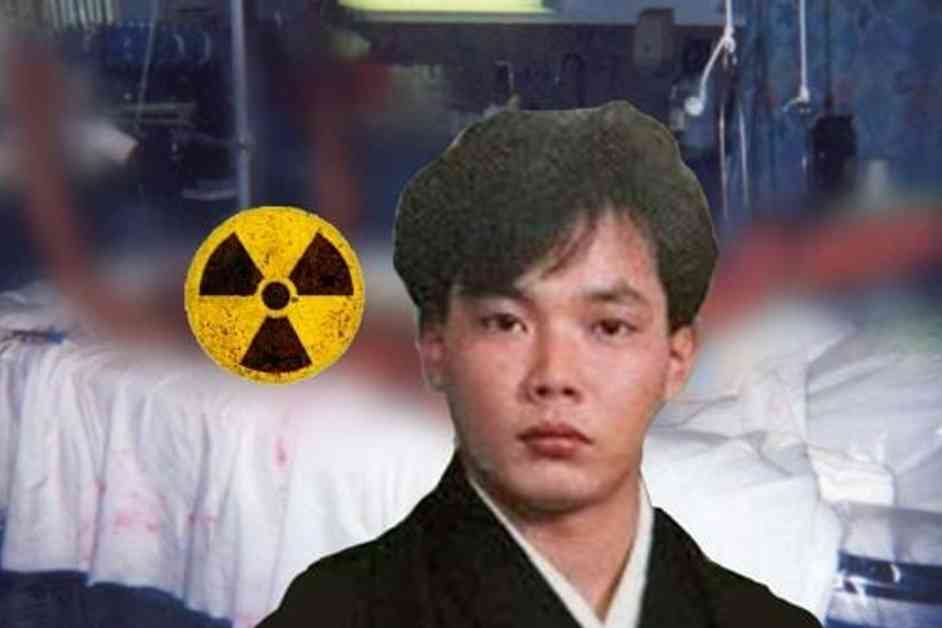The tragic tale of Hisashi Ouchi, a Japanese technician who endured one of the most distressing cases of radiation poisoning in history, serves as a poignant reminder of the devastating repercussions of a nuclear accident. His story, marked by dedication, curiosity, and ultimately suffering, sheds light on the profound impact of such catastrophic events.
Who Was Hisashi Ouchi?
Born on March 1st, 1965, in Japan, Hisashi Ouchi displayed a deep passion for science and technology from a young age. Growing up in a humble household, he was recognized for his inquisitiveness and commitment—traits that eventually propelled him into a career in nuclear technology. As a technician at JCO Co., Ltd., a nuclear fuel processing company, Ouchi found fulfillment in his challenging role. His work demanded precision and a profound understanding of nuclear science. Despite the technical nature of his job, colleagues described him as approachable and warm, with a knack for putting others at ease through storytelling and laughter.
The Criticality Accident At Tokaimura
Tragedy struck on September 30, 1999, when a criticality accident occurred at the JCO nuclear fuel processing plant in Tokaimura, altering Ouchi’s life irreversibly and leaving an indelible mark on the global nuclear industry. Ouchi, along with his colleague Masato Shinohara and supervisor Yutaka Yokokawa, was part of a three-man team preparing uranium for nuclear fuel. In a fatal error, they added 16 kg of uranium to a processor, far exceeding the 2.4kg safety limit. A sudden blue flash preceded the onset of radiation alarms, signaling the grave danger they were in. Ouchi, positioned directly over the processing container, bore the brunt of the accident, receiving a staggering 17,000 millisieverts (mSv) of radiation—the highest ever recorded for an individual in a single instance.
The Radiation’s Devastating Effects
Initially appearing healthy, Ouchi’s condition deteriorated over a harrowing 83-day ordeal as his body struggled to replenish dying cells due to the radiation exposure. His skin began to peel off in patches, and he experienced breathing difficulties as fluid accumulated in his lungs, necessitating the use of a ventilator. The cells in his digestive system responsible for absorbing nutrients and medication started to perish, leading to excruciating gastrointestinal pain, daily excretion of three litres of diarrhea, and internal bleeding that required multiple blood transfusions to sustain his life. Despite medical interventions such as skin grafts and stem cell transplants, Ouchi’s condition continued to decline, with the loss of his eyelids causing extreme discomfort and dry, painful eyes. The excruciating pain led him to beg doctors to cease treatment, a heartbreaking plea that reflected the agony he endured.
The Medical Response
Medical professionals made valiant efforts to save Ouchi, employing various treatments and pain management strategies, but his condition continued to deteriorate. His skin loss escalated, causing him to leak bodily fluids through exposed flesh, a grim testament to the severity of his injuries. Despite resuscitation attempts after his heart failed on the 59th day, Ouchi succumbed to multiple organ failure on his 83rd day in the hospital, ending his suffering. Tragically, Shinohara, his colleague, also passed away from multiple organ failure a few months later, underscoring the tragic toll of the accident. Yokokawa, the supervisor, was fortunate to recover after a three-month hospitalization with minor radiation sickness. Japan implemented new legislation in response to the incident, aimed at enhancing safety measures within the nuclear energy sector.
The heart-wrenching account of Hisashi Ouchi’s battle with radiation poisoning serves as a sobering reminder of the catastrophic consequences of nuclear accidents. His story, marked by resilience, suffering, and ultimately loss, underscores the importance of stringent safety protocols in the nuclear industry. As we reflect on his harrowing ordeal, we honor his memory and the enduring impact of his tragic fate.













